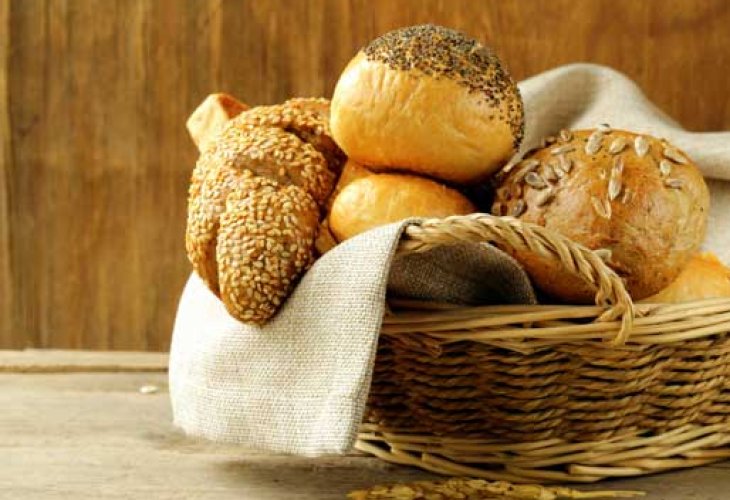Sweet Bun - Hamotzi or Mezonot?
Understanding the proper blessings for pizza and sweet buns, and the differences between Ashkenazi and Sephardic traditions

'Pat Haba'ah B'kisnin'
For bread that people do not typically make into a full meal, we recite the blessing 'Borei Minei Mezonot.' Such bread is called "Pat Haba'ah B'kisnin" (Kesef Mishneh Brachot 3:9). The early authorities disagreed about the definition of this term: Some say it refers to dough kneaded with fruit juice, sugar, and the like. Others wrote that it is bread filled with sweet fillings, while others believe it refers to dry and crispy bread. The Shulchan Aruch (168:7) rules in accordance with all opinions, and we recite Borei Minei Mezonot over bread that meets any of these three conditions. Now, with Hashem's help, we will briefly explain each of these approaches.
Kneaded: Sweet Challah and Buns
Regarding dough kneaded with fruit juice, sugar, and the like - if the taste of the mixture (fruit juice, etc.) is noticeable in the dough, the Shulchan Aruch rules that its blessing is 'Mezonot,' and this is the practice of Sephardim. However, our Ashkenazi brothers who follow the Rama's opinion require that the majority of the liquid be fruit juice, sugar, oil, etc. relative to water, and only then is its blessing Mezonot (Rama ibid. and Mishnah Berurah 33). It's important to note that the "majority of fruit juice" mentioned in halacha refers to 100% natural fruit juice, and water added to the juice is not included in this calculation (in margarine, about fifteen percent is water which doesn't count as a sweetener, according to the book Vezot HaBracha, p. 19). Therefore, regarding the blessing for sweet challah baked with a minority of fruit juice relative to water, for Ashkenazim the blessing is 'Hamotzi,' while for Sephardim, the measure for the Mezonot blessing is whether the taste of the mixture is noticeable in the dough. Thus, the sweetness must be noticeable in the dough, and it's not enough for the taste to be slightly different from regular challah (Kaf HaChaim 168:58; Chazon Ovadia Brachot p. 55; Responsa Or L'Tzion 2:12:4).
Sweet Challah for Shabbat Meals
According to what was explained above, for Sephardim to recite Mezonot, the taste of the mixture must be noticeable in the dough. Therefore, challah or buns in which one can taste sweetness (not just a slightly different taste from regular challah) whose blessing is Mezonot - one does not fulfill the obligation of the three Shabbat meals with them, since there is an obligation to eat bread during Shabbat meals as explained in the Shulchan Aruch (Siman 274:4). Challah with a noticeable sweet taste is considered 'Pat Haba'ah B'kisnin' whose blessing is Mezonot, so one should be careful to purchase regular bread and not sweet bread (Chazon Ovadia ibid.).
A Sephardi Visiting an Ashkenazi on Shabbat
According to this, a Sephardi who is hosted by an Ashkenazi on Shabbat who customarily uses sweet challah, Maran Rabbi Ovadia Yosef wrote that one should bring along bread without sweetness and fulfill the mitzvah of the three meals with regular bread, reciting Hamotzi and Birkat Hamazon as required (this also applies to those staying at hotels that serve sweet challah or buns for Shabbat meals). With Hashem's help, in the next issue, we will continue to discuss these laws as well as the blessing for pizza.
Rabbi Shai Amar is a rabbi in the Halacha department of Hidabroot

